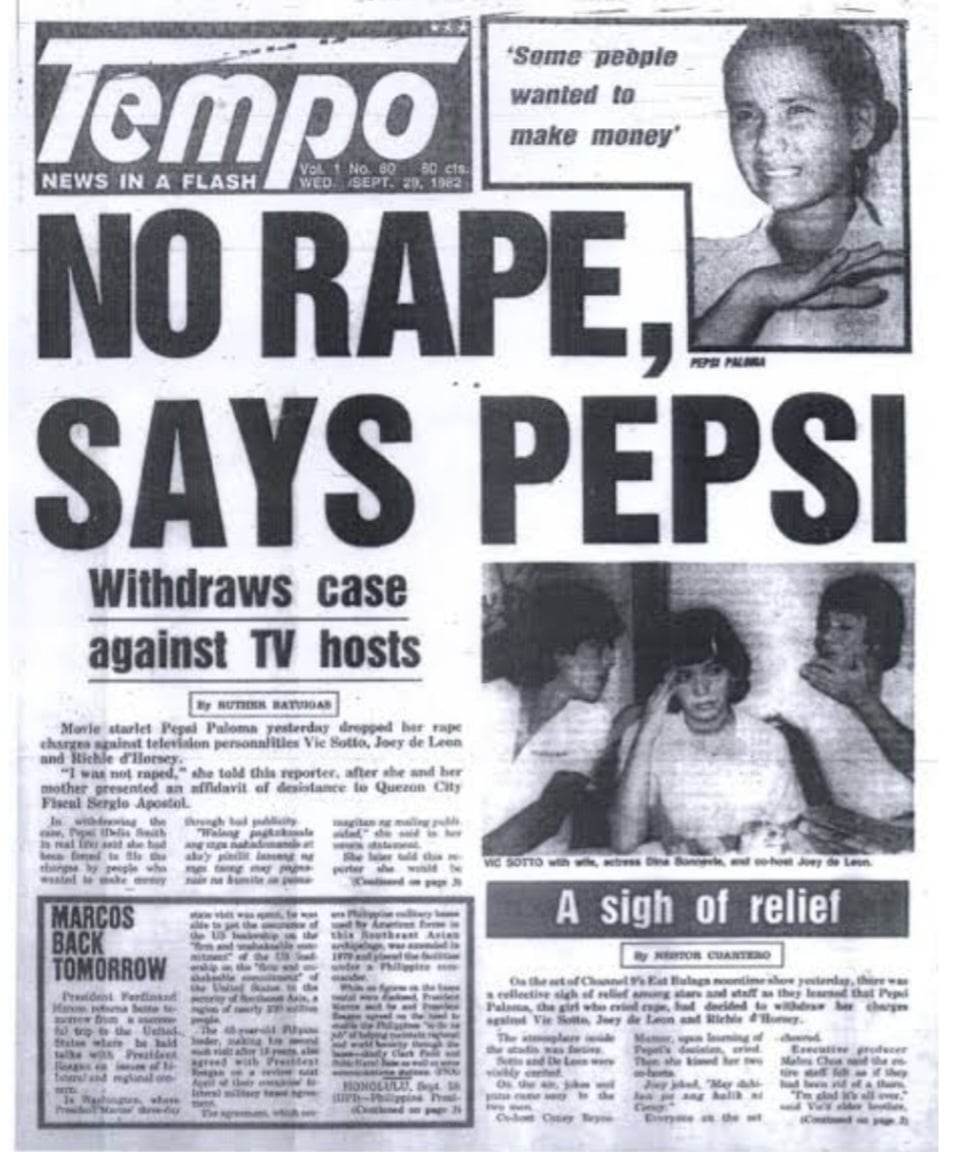Who is Pepsi Paloma, and why is her name trending nearly 40 years after her death?
At A Glance
- "I was not raped," Pepsi was quoted as saying in the Tempo article. "Some people wanted to make money."

Pepsi Paloma is a remarkable figure in Philippine pop culture history.
Her life story weaves a narrative rich with both tragedy and enigma. Born in the 1960s, Pepsi gained notoriety as a dancer and actress, captivating audiences with her performances and undeniable charisma.
However, beneath the glitz and glamour lay a life marred by personal struggles and controversies, including her death at a young age.
This tragic end only deepens the intrigue surrounding her legacy, leaving many questions unanswered and adding layers to her complex persona.
Pepsi’s life continues to resonate with fans and scholars alike, reflecting the darker side of fame and the fleeting nature of celebrity in a rapidly changing cultural landscape.
Delia Duenas Smith, known by her stage name Pepsi Paloma, was born on March 11, 1966. She was the eldest of four siblings.
The children were raised in a modest household by their resilient single mother, Lydia Duenas, a native of Samar.
Pepsi's father, Kenneth Smith, an American letter carrier, left the family when they were young, leaving Lydia to nurture and support her children alone.
In 1980, Pepsi met Tita Ester who helped her enter the entertainment industry.
Tita Ester then introduced Pepsi to Rey de la Cruz, an influential talent scout and former optometrist. Rey had a reputation for discovering and nurturing talent, having previously helped launch the careers of prominent actresses such as Rio Locsin, Sarsi Emmanuelle, Myrna Castillo, and others.
This meeting began Pepsi’s journey into entertainment, setting the stage for her future success in the industry.

In 1980, Pepsi, then 14, went daring in the movie "Brown Emmanuelle," directed by Celso Ad. Castillo.
Pepsi also appeared in other sexy films, such as Virgin People and Naked Island released in 1984.
In 1982, Pepsi and fellow sexy star Guada Guarin made a guest appearance in the hit comedy series "Iskul Bukol," where they met Vic Sotto, Joey De Leon, and Richie D' Horsie.
It was alleged the three male stars molested Pepsi and Guada at a hotel in Quezon City, reports said.
Pepsi, then 15, cried rape and filed a complaint against the male stars. However, Pepsi withdrew the case against the television hosts.
A banner story titled: "No rape, says Pepsi" appeared on Tempo newspaper on Sept. 29, 1982.
"I was not raped," Pepsi was quoted as saying in the Tempo article. "Some people wanted to make money."
Since then, controversies have continued to hound Pepsi. Reports claimed the actress became desperate.
Reports added that Pepsi appeared sickly when she returned to Rey, her original talent manager. Pepsi was taken to the hospital for her confinement.
On May 31,1985, Pepsi was found dead in her apartment. Police reports said the young star committed suicide by hanging herself. She was 18.
Almost 40 years later, Pepsi trended again after a teaser for the movie "The Rapists of Pepsi Paloma" was released. The upcoming movie was directed by Darryl Yap.
On Jan. 9, Bossing Vic filed a cyber libel complaint against Darryl over the trailer of a movie about Pepsi.
Vic and his lawyers filed a complaint with 19 counts of cyber libel before the Muntinlupa regional trial court. The complaint seeks moral damages amounting to P20 million and exemplary damages of P15 million.